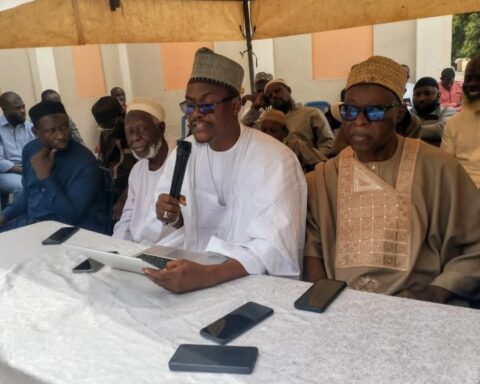The United Nations Development Programme (UNDP), has lamented that the current global uncertainties caused by conflicts in different regions of the world has led to diminished investments critical for Africa’s growth.
Speaking at the closing of the 2024 African Economic Conference (AEC) in Gaborone, Botswana, Dr Raymond Gilpin, the Chief Economist and Head of Strategy, Analysis, and Research Team, Regional Bureau for Africa, UNDP noted that “the rising trend towards protectionism can hurt African trade and slow Africa’s Gross Domestic Product (GDP).”
Daily Query reports that the 2024 AEC was hosted by the African Development Bank (AfDB), along with the Economic Commission for Africa (ECA) and the UNDP, in collaboration with the government of Botswana.
The two-day conference, which began on Saturday, November 23 ended yesterday, Monday, November 25.
Besides conflicts, Gilpin also referenced climate change effects as part of the factors inducing low investments and, by extension, economic depression in Africa.
“Africa continues to bear the brunt disproportionately of climate and yet continues to be subdued because of the effects of climate change,” Gilpin said.
“This is not just in terms of economic progress, but also the safety and security of the people and communities on the continent.”
Noting that ordinarily, the challenges should cast a cloud over Africa’s economic future, the UNDP chief economist, however, assured that “we have been able to listen to the data, empirical results and policy pronouncements (which indicate that) if we are smart about it as a continent, we can ensure Africa’s economic future in spite of these uncertainties.”
“This can be through integration where we scale up through technology, where we find new ways to solve old problems; through entrepreneurship, where we unleash dynamism in the economy, leveraging our demographic components and competitive advantage,” he said.
Stressing that the AfDB, ECA and UNDP are the three most important and preeminent institutions in Africa with regard to development issues, Gilpin said that the conference had brought as much optimism about Africa’s economic future as the realistic direction the empirical data was pointing to the continent’s development stakeholders and partners.
“Hearing from people on the ground should point us in certain directions. I hope it will continue to guide, inform and instruct how we do business on the African continent,” Gilpin added.
“If we are at the end of the day going to rise above the global uncertainties, it is not just the smart things we say on forums like this.
“It is how we change the way we do business as institutions on the African continent, recognising and realising that the Africa of 20 years ago is not going to be the Africa of next year and therefore, we must change.
“So, African researchers have spoken, and it is now incumbent upon us to act, and I hope that as institutions, we will take it forward.”



























